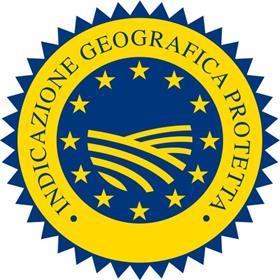
The Italian Minister of Agriculture Luca Zaia has claimed the failure of negotiators to reach agreement on a new global trade deal has spared producers of fruits, vegetables and other foods that bear protected geographical indications from a deal which would have put them at a considerable disadvantage in terms of being able to safeguard their products from imitations.
Speaking to reporters following the collapse of trade talks at the WTO headquarters in Geneva this week, Mr Zaia said that, although the summit had yielded 'important results' for the global trade in tropical products, the proposed agreement which was on the table would have been bad for producers and consumers alike. 'The exclusion of products of protected geographical indication would, however, have caused dramatic consequences for the entire sector,' he said.
A number of European countries, including Italy, back the inclusion of geographical indications on products other than wines and spirits, for which guidelines were set out in 1994, under Article 23 of the WTO Agreement on Trade-Related Aspects of Intellectual Property Rights (TRIPS).
The TRIPS Agreement says that all governments must provide the owners of a PGI the right, under their laws, to prevent the use of a geographical indication identifying wines and spirits not originating in the place indicated by the geographical indication.
For Italy, the importance of protecting its other PGIs (and PDOs – protected denominations of origin) has influenced its stance during the recent trade negotiations. The country currently has a total of 169 PGI and PDO products, including 54 protected items in the fresh produce category.
If applied to fresh produce as well, the Article 23 of the TRIPS Agreement would offer protection to fruit and vegetable PGIs even where the public is not being misled, where there is no unfair competition and where the true origin of the good is indicated or the geographical indication is accompanied by expressions such as 'kind', 'type', 'style', 'imitation' or the like.
Several European governments argue that extending Article 23 will increase the protection of these marks in international trade, but opposition to the move has come from other countries including the US, which question the need to extend the stronger protection of Article 23 to other products. However, Mr Zaia (pictured left) said he felt consumers would also have suffered had a new trade deal omitting other geographical indications from Article 23 been ratified. 'I cannot forget that for the Italian and European agricultural sector geographical indications are an important and distinctive sign of individual sources of production,' he commented. 'If the agreement had been passed, thus penalising our products, it would also have penalised consumers.'
However, Mr Zaia (pictured left) said he felt consumers would also have suffered had a new trade deal omitting other geographical indications from Article 23 been ratified. 'I cannot forget that for the Italian and European agricultural sector geographical indications are an important and distinctive sign of individual sources of production,' he commented. 'If the agreement had been passed, thus penalising our products, it would also have penalised consumers.'
In response to complaints from a number of developing nations that the WTO collapse threatens their economic survival, he added: 'With regard to the fact that failure could lead to further impoverishment of developing countries, I remember that asymmetrical principles cannot apply to economics. To have asked Italian agriculture to pay a cost like the one proposed could have brought disastrous consequences for our own economy and also for those of several Western countries, rather than for the growth of emerging economies such as China and India.'



